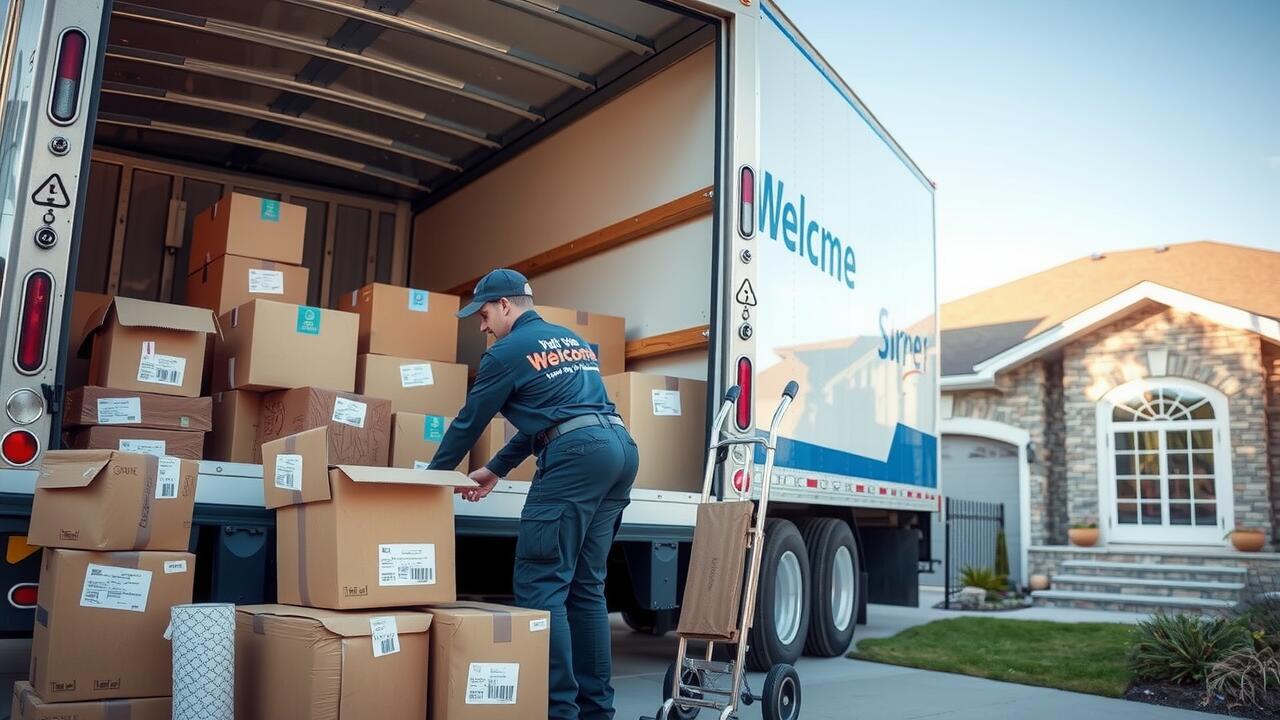
Table Of Contents
Insurance and Protection for Your Belongings
When planning a long-distance move, protecting your belongings becomes a priority. Insurance options can provide peace of mind throughout the journey. Many moving companies offer different levels of coverage. Evaluate the value of your items and choose an insurance plan that fits your needs. Standard liability coverage may not fully protect valuable possessions, making additional protection a smart decision for long-distance moves.
In the context of long-distance moving in Georgia, United States, understanding the local regulations may also be beneficial. Some states have specific requirements and restrictions regarding insurance coverage. It is crucial to familiarize yourself with these local guidelines to ensure your belongings are adequately protected during transit. Researching and selecting the right insurance can make a significant difference in safeguarding your items throughout this complex process.
Understanding Moving Insurance Options
When planning a long-distance move, it is crucial to understand the various insurance options available to protect your belongings. Many moving companies offer basic liability coverage, which typically covers a small percentage of the value of your items. This option may not be sufficient for expensive or sentimental pieces, making additional coverage a worthwhile consideration. Increasingly, movers also provide full-value protection, ensuring that you are compensated for any loss or damage during the journey.
In the context of Long Distance Moving in Georgia, United States, exploring these options is essential. Different states may have varying regulations and safety standards, influencing the insurance policies available. Before finalizing your moving plan, evaluate how much your belongings are worth and choose a protection plan that aligns with your needs. This foresight can save you from unexpected costs and stress during the moving process.
Fuel Costs for Your Journey
Fuel costs can significantly impact your overall budget for a long-distance move. When planning your journey, consider the distance you will travel and the type of vehicle you will be using. Calculate the estimated mileage and look up the average fuel efficiency for your vehicle to determine how many gallons of gas you will need. Don’t forget to factor in fluctuating fuel prices along your route, as they can vary from one state to another.
For those considering long-distance moving in Georgia, United States, it is essential to plan for potential mileage fluctuations, especially if you encounter detours or any travel delays. Having a backup budget can help accommodate variations in fuel expenses. Keep in mind that some routes might offer cheaper fuel or discounts at certain gas stations, which can further aid in controlling costs during your move.
Estimating Mileage and Fuel Consumption
Estimating mileage and fuel consumption is crucial for budgeting a long-distance move. When planning your route, consider the distance between your current and new location. For Long Distance Moving in Georgia, United States, using a mapping service can help gauge your total mileage. It’s important to remember that different vehicle types may have varying fuel efficiencies, impacting your overall fuel cost.
Additionally, factors such as terrain, weather conditions, and road types can affect fuel consumption. Planning for frequent stops can help ensure that you maintain a comfortable driving pace. By keeping these elements in mind, you can create a more accurate estimate of the fuel costs associated with your long-distance relocation, resulting in a more efficient budget.
Temporary Housing and Travel Expenses
Considering long-distance moving in Georgia, United States, it is essential to factor in temporary housing and travel expenses. Depending on the distance to your new destination, you might need accommodations for a night or two. Researching hotels or rental options along your route can help you find affordable places to stay. Keep in mind that prices can vary significantly based on location and time of year. A budget for meals and miscellaneous travel expenses can also make your journey smoother.
Additionally, if you anticipate making multiple stops, it is wise to plan for those costs as well. Dining out and gas station snacks can quickly add up, so setting a daily budget will aid in managing overall expenses. Ensure to account for any potential delays or detours that could extend your travel time. Every little bit of planning counts when it comes to long-distance moving in Georgia, United States, ensuring you stay on track financially as you transition to your new home.
Planning for Stops Along the Way
When planning a long-distance move, it’s essential to factor in potential stops along your journey. These breaks not only provide an opportunity to stretch your legs and refuel but also allow you to explore new locations. Consider the distance between your starting point in Georgia and your destination. Identify key cities or attractions along the route that could serve as convenient rest stops or overnight stays.
When budgeting, account for meals, lodging, and any activities you might want to experience. If you’re considering Long Distance Moving in Georgia, United States, check for amenities and accommodations that offer comfort during your travel. Keep in mind that planning these stops in advance can help you manage your time effectively and avoid costly last-minute decisions.
FAQS
How can I determine the total budget for my long-distance move?
To determine your total budget, consider all expenses including moving company fees, packing supplies, insurance for your belongings, fuel costs, temporary housing, travel expenses, and any additional costs like storage or special handling of items.
What types of moving insurance should I consider?
You should consider two main types of moving insurance: released value protection, which is usually included at no additional cost but offers minimal coverage, and full value protection, which provides more comprehensive coverage for your belongings but at an extra cost.
How do I estimate fuel costs for a long-distance move?
To estimate fuel costs, calculate the total mileage of your journey and divide it by your vehicle’s fuel efficiency (miles per gallon). Then, multiply that result by the average price of fuel to get an estimated total fuel cost.
What should I budget for temporary housing during a long-distance move?
When budgeting for temporary housing, consider the length of your trip, the cost of hotels or rentals along your route, and food expenses. Research average prices in the areas you plan to stop to create a more accurate estimate.
Are there any hidden costs I should be aware of when moving long-distance?
Yes, hidden costs can include additional fees from the moving company for stairs or elevators, costs for packing supplies, unexpected repairs, or extra insurance. It’s essential to read your moving contract carefully and ask questions about any potential additional charges.
